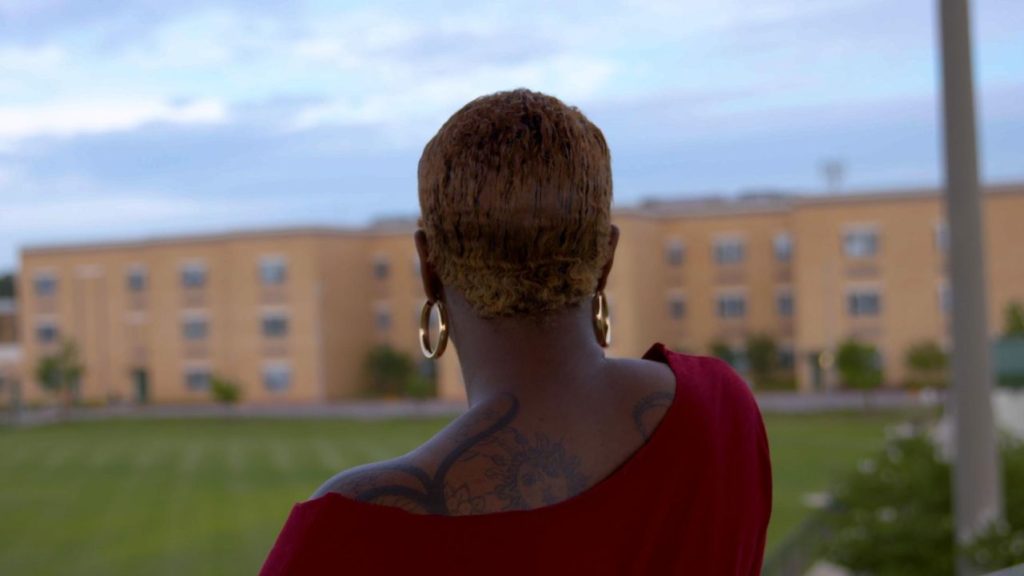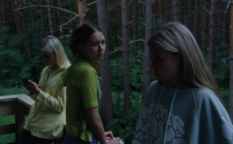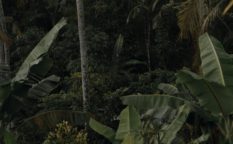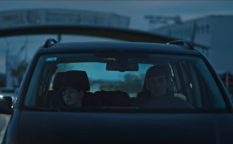SXSW 2021: Spring Valley (2021)

History is made not only by what we record but how we record it. From Goya’s War Sketches to the mobile phone footage of George Floyd’s murder, the medium can – to quote Marshall McLuhan – be the message. It can also get you arrested. That was the case for high school student Niya Kenny who whipped out her phone – along with two other classmates – to capture School Resource Officer Ben Fields as he flipped a fellow student Shakara to the ground in what quickly became a viral exposé of police violence and brutality, disproportionately aimed at young black girls. Shakara and Niya were both arrested for the crime of ‘disturbing school’, an actual crime which sees police officers attached to schools in order to impose discipline.
Garrett Zevgetis’ second feature documentary attempts at once a deep dive into the incident and an attempt to encompass the broader historical context and the aftermath. The context is literally unearthed in the landscape of South Carolina and the swamps which geographer Janae Davis explores. ‘South Carolina is thick,’ she states as she wades through a swamp to an island where slaves took refuge. ‘It has layers.’ In getting to those layers, Zevgetis interviews the experts and sociologists who also provide wider context, but he also focuses on the participants: Niya, Shakara and Ben Fields, providing them all with a space to have their say. Fields stands by his actions. He was using appropriate force in a difficult situation, and he views himself as the victim, losing his job for doing his job. (A title will later inform us he is now gainfully employed training officers in use of force.) A particularly effective moment is an almost forensic replaying of the incident via the three different angles and confronting Fields with his actions.
A further confrontation takes place when Vivian Anderson, an activist who relocates from New York to fight for the girls, sits down with him and tries to express her point of view about a white officer throwing a black girl across a schoolroom. There’s something of the Reality TV vibe here. A hoped for epiphany, a moment of connection, however, paradoxically, it is the film’s attempts to bring people together which only proves how distant and divided America truly is. Fields obviously dislikes any notion that he is a racist – he had a black girlfriend! – so much so he wants another conversation with Vivian to put his point across. But the insuperable gap is between the discussion of systemic racism and personal experience of racism. If you work in an institutionally racist role, then it hardly matters whether you are personally racist or not. There is no sense that Fields feels sorry for Shakara or Niya – both of whom withdrew from school – and Shakara particularly suffered as the national conversation quickly shifted onto blaming the student for the incident.
Technically, the film is slick though not particularly imaginative. The onscreen graphics and drone shots combine with the talking heads and the meetings to persuasively make the argument. However, this argument has outpaced the filmmakers. Since the incident in 2015, there has been an increasing accumulation of evidence – mostly taken from cell phones – showing police violence against people of colour and the Black Lives Matter movement (which is included in the film) has gained huge momentum. The two-steps-forward-one-step-back conclusion we are left with in Spring Valley shows that as many places seek to get rid of police from their schools, it is still the biggest growth area in American law enforcement. Zevgetis’ film struggles to encompass these contrary movements, but it is to its credit that it includes both.
Watching as a European, personally I feel the sight of police in school looks, well, fascistic. The respect for order and discipline which it invokes – over creativity, originality and dissent – would be discomfiting in an authoritarian regime: it’s nauseating in a country that holds itself up to be a beacon of liberty. One telling moment comes early on when Niya explains how when she knew Fields was on duty she told her classmates to get their phones out. For all the talk of restraint and protocols, this indicates that the kids of this school didn’t see the policeman’s actions as an anomaly, but as a distinct likelihood. As Frazey Ford sings, the kids are having none of it.
















